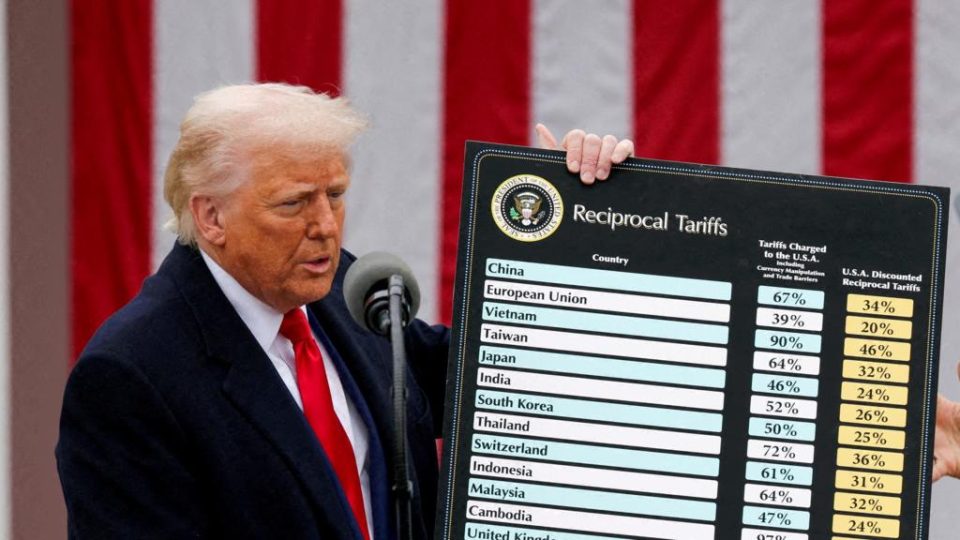A major ruling from the U.S. Court of International Trade in New York has thrown a wrench into President Donald Trump’s global trade strategy, with a unanimous three-judge panel finding that he lacks the authority to impose sweeping tariffs on imports from dozens of countries. The Trump administration quickly filed an appeal, but the decision has already sent shockwaves through business circles and international trade negotiations.
At the heart of the case was Trump’s use of the International Emergency Economic Powers Act (IEEPA), a law from 1977 designed to give the president tools to respond to extraordinary threats. Trump argued that persistent trade deficits and other economic challenges constituted a national emergency, justifying broad tariffs on countries like China, Canada, and Mexico, as well as a 10% universal tariff on most other trading partners. However, the court ruled that the IEEPA does not empower the president to use tariffs as a blanket solution for trade imbalances. The judges were clear: under the U.S. Constitution, only Congress has the authority to regulate commerce with foreign nations.
The ruling, handed down on Wednesday, immediately suspended the most controversial tariffs, including a 30% levy on China, a 25% tariff on select goods from Mexico and Canada, and the 10% universal tariff on most of the world. The court gave the executive branch up to ten days to implement the suspension, but the Trump administration signaled its intent to fight the decision, filing a notice of appeal and criticizing the court’s intervention as an overreach by unelected judges.
White House officials have been vocal in their disagreement. Kush Desai, deputy press secretary, argued that “it is not the responsibility of unelected judges to determine how to effectively manage a national emergency,” and emphasized that the administration would use every available executive power to address what it sees as a crisis for American workers and industry. Meanwhile, Stephen Miller, a key policy advisor, took to social media to accuse the judiciary of a “coup,” reflecting the administration’s combative stance.
The legal battle is not just about trade policy but also about the balance of power between the executive and judicial branches. The court’s decision was the result of two consolidated lawsuits, one brought by a coalition of twelve states and another by a group of small businesses, including a New York wine importer and a Virginia-based producer of educational kits and musical instruments. These plaintiffs argued that the tariffs were causing real harm to their operations and that the president’s actions exceeded his constitutional authority.
Despite the legal setback, the White House is pushing forward on multiple fronts. Kevin Hassett, a senior economic adviser, announced that three trade deals are nearly complete and that more are in the pipeline. Hassett dismissed the court’s ruling as the work of “activist judges” and expressed confidence that the administration would prevail on appeal. He also suggested that the legal hiccup would not derail ongoing negotiations, and that several countries could soon open their markets to American products.
“There are numerous agreements in the pipeline. Three of them appear to be essentially finalized,” Hassett said in an interview. “If there are little hiccups here or there because of decisions that activist judges make, then it shouldn’t just concern you at all, and it’s certainly not going to affect the negotiations.”
The ruling has injected considerable uncertainty into global trade dynamics. Many analysts are now questioning whether the so-called reciprocal tariffs scheduled for July will ever take effect. The decision also raises broader questions about the future of U.S. trade policy, the willingness of other countries to negotiate, and the potential for Congress to assert its authority over trade matters.
For businesses, the court’s intervention offers temporary relief. Importers and exporters had been bracing for higher costs and supply chain disruptions as the tariffs took effect. Now, with the tariffs suspended, at least for the moment, companies can breathe a little easier. However, the situation remains fluid. The Trump administration’s appeal means that the legal battle is far from over, and businesses should prepare for ongoing volatility.
The stock market reacted cautiously to the news. While some companies tied to international trade saw a modest uptick, broader indices remained steady, reflecting uncertainty about the ultimate outcome. Investors are watching closely to see how the administration’s appeal plays out and how the pending trade deals are finalized.
The U.S. Court of International Trade’s decision to block Trump’s tariffs marks a significant moment in the ongoing debate over executive power and trade policy. The administration’s appeal ensures that the issue will remain in the spotlight, even as three new trade deals near completion.

